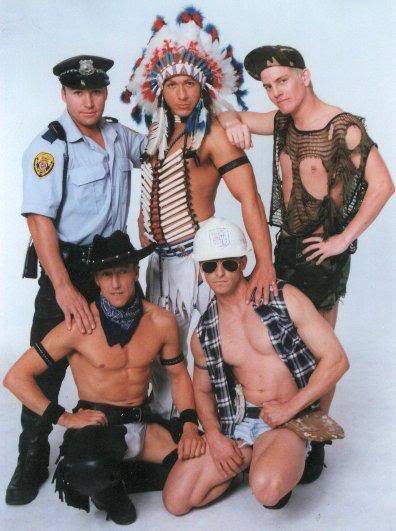 The first question that I had to address when coming out was the question of masculinity. Gay men are often seen as less masculine then straight men, mainly because the stereotypical image of a gay male is always effeminate.
The first question that I had to address when coming out was the question of masculinity. Gay men are often seen as less masculine then straight men, mainly because the stereotypical image of a gay male is always effeminate.
I have come to learn that being gay is kind of a paradox. Gay men maybe more open sexually, but we are still socialized to be men. Gay men may have more feminine characteristics, however, when it comes to being more in touch with our emotions, we are just the same as straight men.
Much like the straight community, gay men are sexist. A friend of mine made a point of telling me he did not like effeminate or flamboyant guys. He said that if he wanted to be with a girl he would be with one. Therefore he doesn’t like to associate with guys who are “girly.”
In both the straight and gay communities, men objectify people. Rather then objectifying women, gay men tend to objectify other men. A friend was recently complaining that he couldn’t find anyone to date. I pressed the issue a little more and he confessed that he could only date a guy that looked “hotter” than himself.
But I think the most important issue that gay and straight men have in common is the issue of being vulnerable. The majority of my gay friends don’t like to feel vulnerable or emotionally open. Their opinions on being vulnerable range from, “I never cry,” “I could never give myself to one person,” or “I don’t ever like the feeling of being dependent on anybody.”
As I started to think about this issue of masculinity I realized that it wasn’t a gay or straight male issue. This was about men — all men — young and old.
I had a conversation with a young male, who is in the seventh grade. We discussed how comfortable he felt expressing himself in the classroom. He said that sometimes he knew the answer to the teacher’s questions but he would not raise his hand because he didn’t want to seem “obnoxious.” He also noted that he always feels like everyone in the classroom is watching him. He said, “everybody watches everyone and you know that they (the students) are looking at you.” What is most interesting about this conversation is that in both incidents I asked him, how does he feel about this and he replied, “I feel nothing.”
That feeling of “nothing” or being detached from one’s emotions is a very masculine trait. Men, in general, are socialized; they are taught to be more detached from their emotions and think logically. We are taught at an early age that being emotional means being weak.
So, in an effort to figure out just what makes one, I googled the words “real man.” The first thing that came up was Askmen.com Top 10 Traits of a Real Man.
Trait #1: A real man is strong
A real man doesn’t cry, doesn’t moan, doesn’t complain, doesn’t get sick, and doesn’t need to go to the doctor every time he sneezes. A real man makes decisions and lives with the consequences. A real man accepts responsibility for his actions and his words. A real man is firm. If life is a bitch, a real man will slap it and move on.
A real man is macho; a real man is tough; a real man doesn’t show emotions. A real man is the backbone of his family and doesn’t have time to be weak. If spiders scare you, you’ll never be a real man.
This trait, however false, is the most prevailing trait of what a real man should be. Ideas like this are constantly used to oppress gays, detach men from their feelings, and keep sexism alive.
After my conversation with the young male I started thinking about my own childhood. Growing up, my grandpa was my male role model. I used to ask him daily, “do you love me?”, because he would never say it. My grandma said it, my mother said it, and my aunt said it, but my grandpa would never say these three simple words: “I love you.” There was like an imaginary force field that blocked him for saying these words.
Check in tomorrow for the send part of Jared’s account of why being male and being masculine stands up as one of the most important issues facing all men today.








